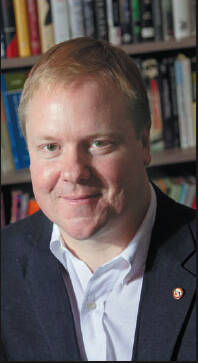Since becoming general secretary of the Communist Party of China in 2012, Xi Jinping has been consistent on three major themes: the party would actively root out corruption and reduce public spending; China would vigorously enforce its borders and territorial claims; and the party would seek to reduce foreign influence over Chinese culture and society.
Strong examples of all three of these were provided earlier this spring. Charges of bribery, abuse of power and the intentional disclosure of state secrets were filed against Zhou Yongkang, formerly the minister of public security. In the South China Sea, despite loud and regular protests from the United States and Southeast Asian nations, including Vietnam, reclamation work and the construction of airstrips and lighthouses on disputed islands continue unabated. And on May 20, Xi called upon the United Front, a gathering of political and civic groups directed by the party, “to incorporate religions in socialist society,” adding, “We must manage religious affairs in accordance with the law and adhere to the principle of independence to run religious groups on our own accord.”
The C.C.P. also in May reminded its 86 million members of its official atheism in a newsletter released by the Central Commission for Discipline Inspection, the country’s emboldened and empowered anticorruption organization. “The fact that a small number of party members have forsaken the party’s worldview of dialectical materialism and have turned to religion is now attracting serious concern, to the extent that it now falls within the purview of disciplinary work,” the C.C.D.I. article warned.
Clearly Pope Francis got the message. During his general audience on May 20, he said, “Ask Mary to help Catholics in China to be ever more credible witnesses of this merciful love in the midst of their people and to live spiritually united to the rock of Peter on which the church is built.”
On a local level, one of the sharpest points of Chinese resistance to religious influence may be in a campaign that has targeted crosses atop churches and in some cases the churches themselves, known officially as “Three Rectifications, One Demolish.” In Mandarin Chinese, it’s also catchy; the words for “rectification” and “demolish” rhyme.
The desired “rectification” is officially part of a nationwide effort to modernize Chinese cities, as the government also seeks to urbanize larger swaths of the population in order to make basic services like health care and public transportation both more available and more affordable. The three “rectifications” are “strengthening, planning and management” of building construction, “uphold administration according to the law” and “strict supervision and inspection.” The “demolish” is obvious.
The character for “demolish” (chai) is a familiar and perhaps unpopular one for many urbanites: it is painted on condemned buildings and other structures, in some cases the first notification that residents receive that they will be moving, like it or not. Churches seem to have been targeted specifically, with few other historic buildings reportedly touched in the same way.
Although the removals and demolitions have led to violent confrontations between parishioners and work crews, public statements from church officials, many of whom are themselves government officials or government-appointed, have been limited. When the Zhejiang provincial government called for public comment on a draft law, however, some church leaders took advantage of what might be their only opportunity for feedback.
The Hangzhou City Committee of the Tang Chong Yi Christian Church, a large Protestant church in Zhejiang, described the draft law as “inconsistent with the content of some of the provisions and spirit of the national law,” suggesting those provisions in the draft “should be deleted.” The committee cited the tradition of placing crosses on the external structure of churches and complained of inconsistencies with existing building codes; the administration of historic buildings and the vagueness of language used in the draft law. It was a rare note of resistance during what appears to be the beginning of a difficult period for China’s Christians as pressure grows on the party’s ideological rivals.








